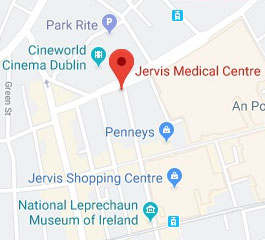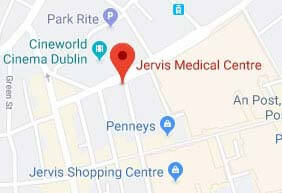Testicular Cancer
The Simple Facts About Testicular Cancer
What is Testicular Cancer?
Testicular Cancer is a growth or tumour, which appears in one of the testicles (which are commonly known as ‘balls’). The testicles are the male reproductive organs contained within a bag of skin called the scrotum, which hangs below the penis. The testicles produce sperm.
What causes Testicular Cancer?
The causes of Testicular Cancer are not known but men born with undescended or partly descended testicles are more likely to develop Testicular Cancer. Research has shown that the risk is increased if you have a family member, father or brother who has developed the disease. Testicular Cancer is one of the most common cancers in young men aged between 15 and 34 years. Approximately one in 280 Irish men will develop Testicular Cancer. Testicular Cancer can be cured if detected at an early stage.
What to look out for?
A swelling or lump in one of your testicles which is not usually painful is the most common sign, however there are other signs to look out for:
- Small lumps or hardness
- Swelling, tenderness
- A sensation of dragging or heaviness in the scrotum
- A dull ache in the lower abdomen or groin
It is important to note that most lumps are benign (noncancerous) but others may be cancerous and should be treated immediately.
How should I check myself?
Hold your scrotum in both hands and use your fingers and a thumb to examine your testicles. It is common for one testicle to be slightly larger than the other, so don’t be alarmed if this is the case. Gently feel each testicle, one at a time. You should be able to feel a soft tube at the top and back of both of them. This tube (epididymis) carries the sperm. It may be slightly tender but do not confuse this with an abnormal lump in the testicles. Often the best place to do this is in the bath or shower where the scrotum is relaxed and the testicles can be felt easily.
What to do
Any man who notices any of the above signs should seek his General Practitioner’s advice immediately. The General Practitioner will be able to assess you and if necessary, refer you to a consultant for further investigation. Do not be embarrassed or nervous, remember early detection of the disease is your best chance of a cure.
What is the treatment for Testicular Cancer?
Initial diagnosis is made by an ultrasound scan of the testicle and by blood tests. If these are very suspicious then the abnormal testicle is removed by surgery with a small incision in the groin. The patient is then scanned to see if the cancer has spread. Depending on the scans and the results of tests on the abnormal testicle, the patient may be advised to have adiotherapy or chemotherapy to destroy any remaining cancer cells and prevent the cancer returning. The results of modern treatment for Testicular Cancer are excellent even in those patients where the cancer has spread outside the testicle to other parts of the body.
Sexual function and fertility
Many patients are concerned that losing a testicle will affect their sex drive and fertility. They should not worry. Removing one testicle does not affect sex drive or the ability to have an erection provided the remaining testicle is normal. The loss of a testicle may embarrass a young man and make him feel insecure in sexual situations.
For this reason, a testicular prosthesis (false testicle) can be placed in the scrotum at the time of surgery to remove the cancerous one. Fertility can be compromised by Testicular Cancer treatment. However the potential to father children should not be greatly affected by removing one testicle provided the other is normal. Indeed most cancerous testicles have little sperm production capability by the time of diagnosis.
Chemotherapy, however, does affect sperm productions in the other “good” testicle. Most testicles will recover after 2 years but in some, sperm production may remain reduced. Because of this, it is now recommended that patients with Testicular Cancer arrange to “freeze sperm” so that if there are problems with fertility later on, this frozen sperm can be used to fertilize a partner’s egg and father a child. This facility is available in the Rotunda Hospital for all cancer patients.



